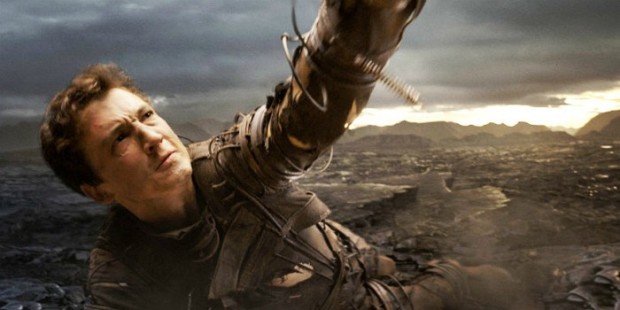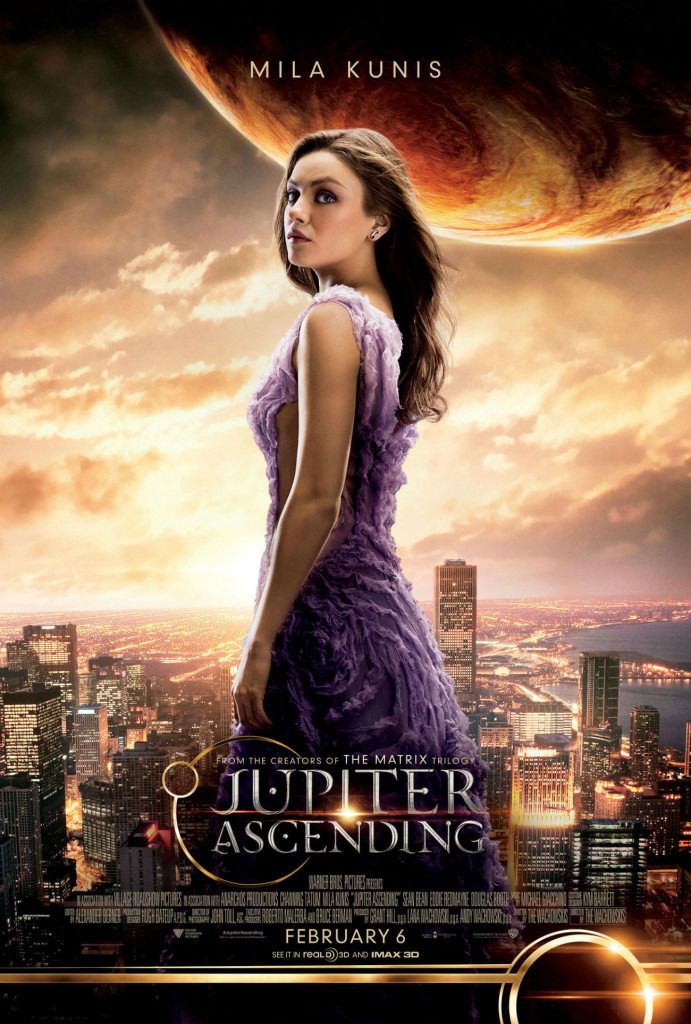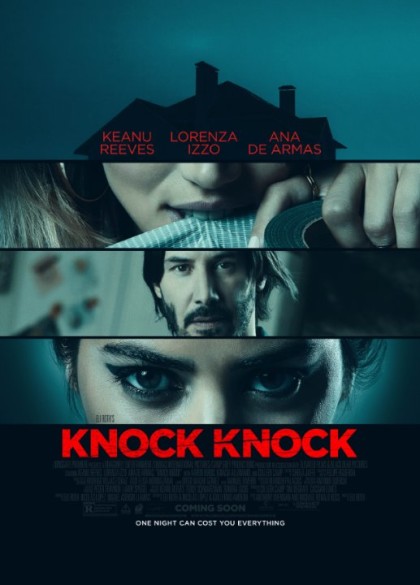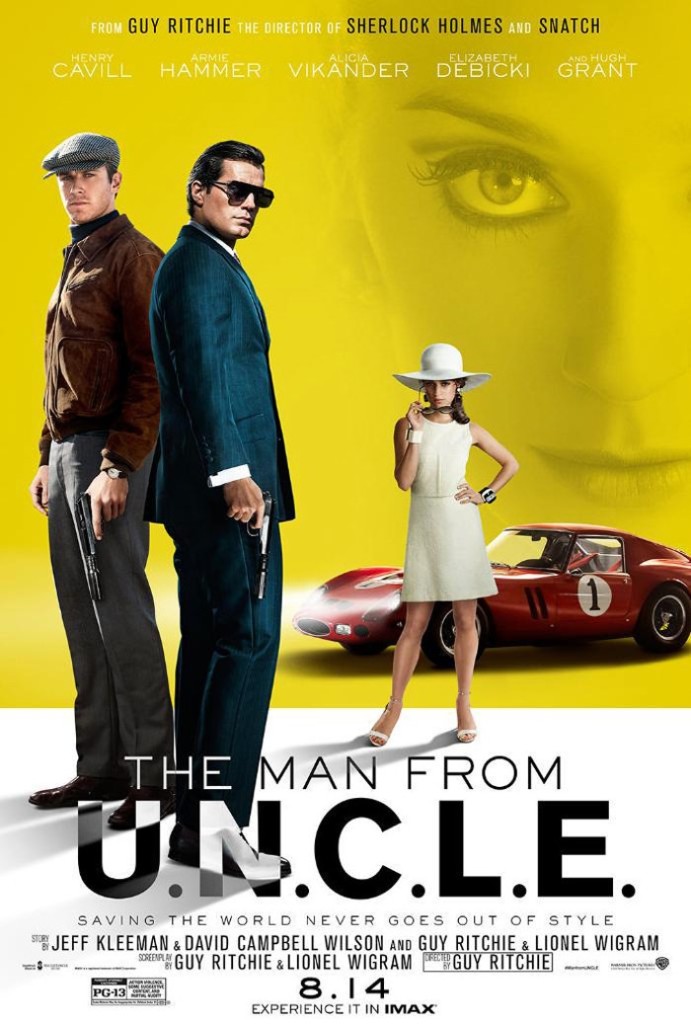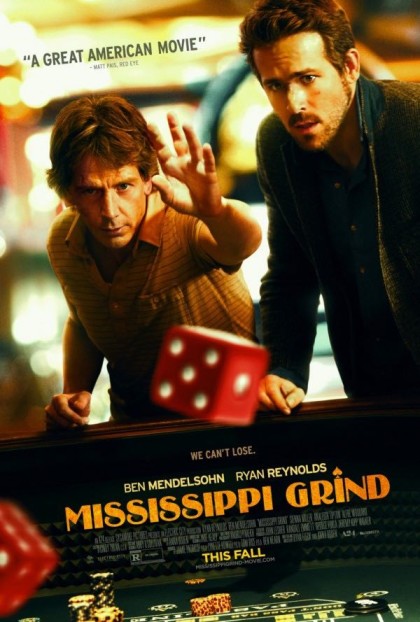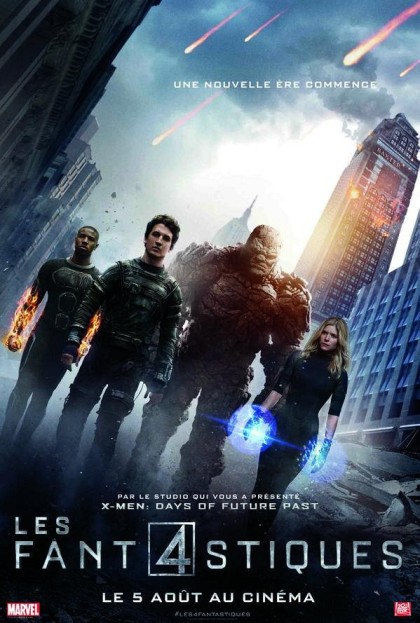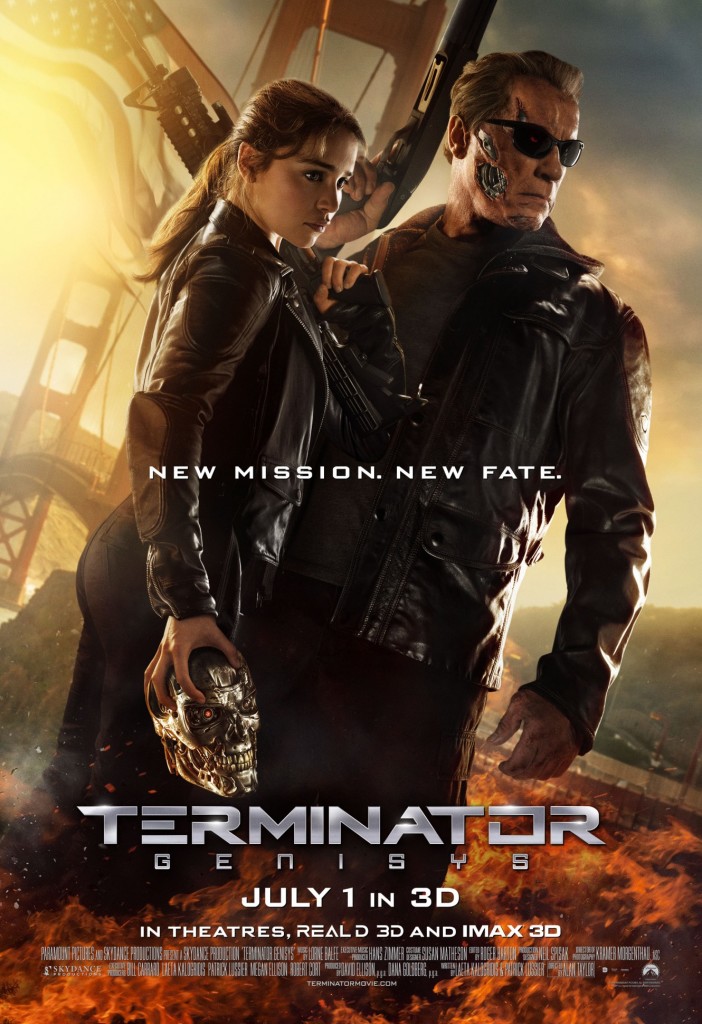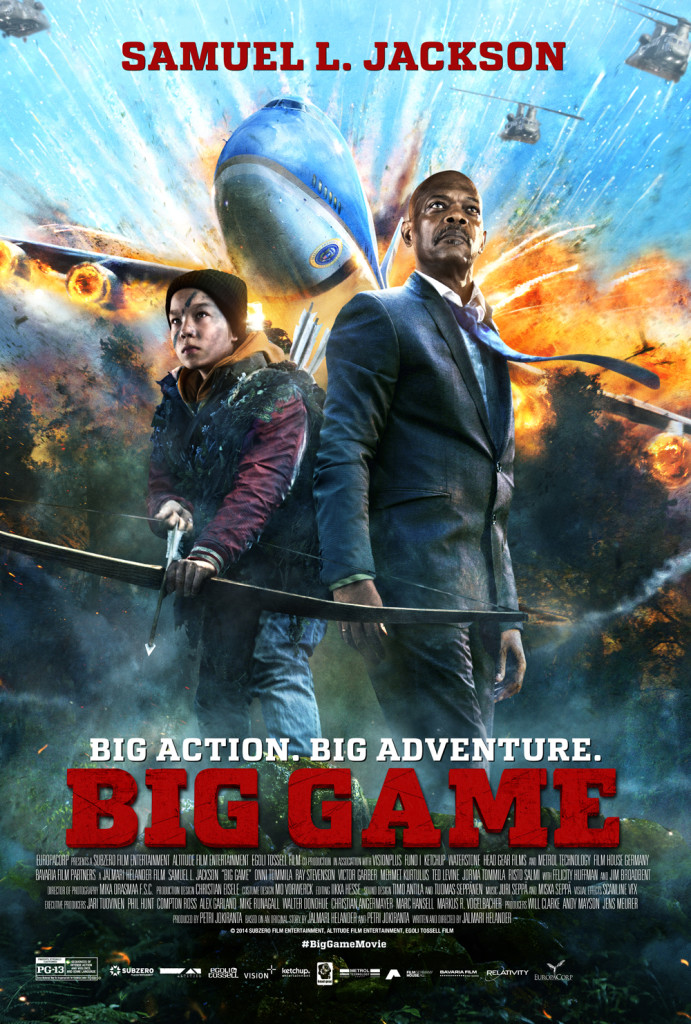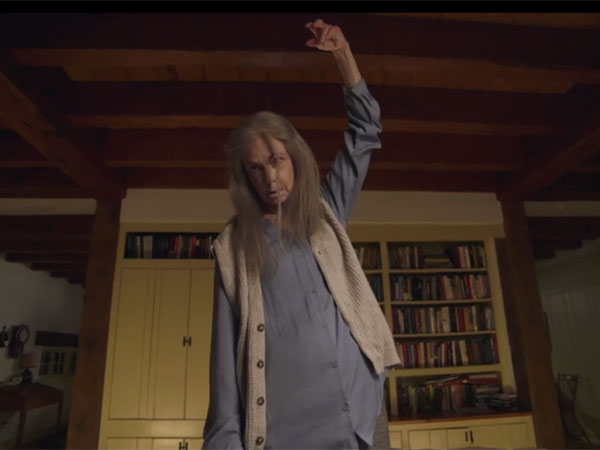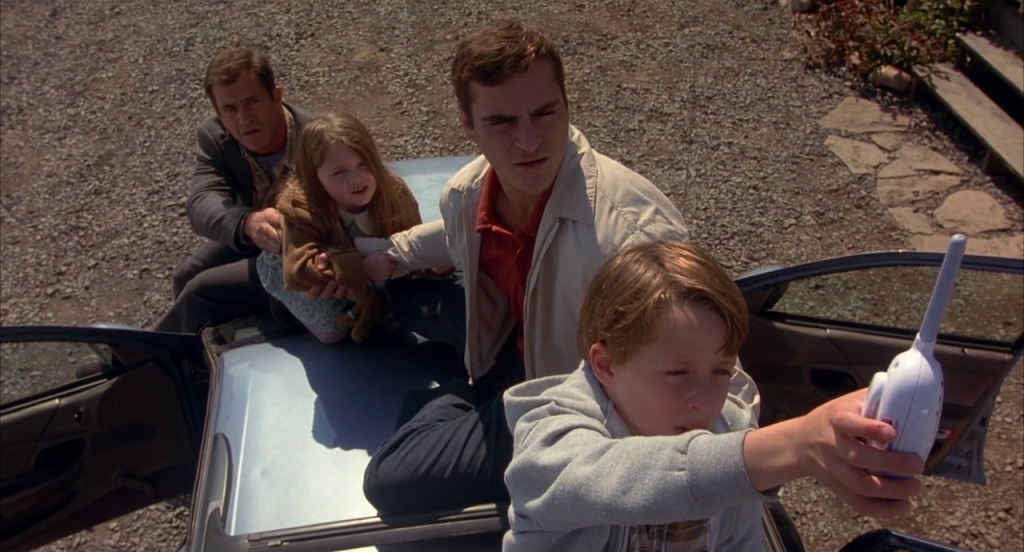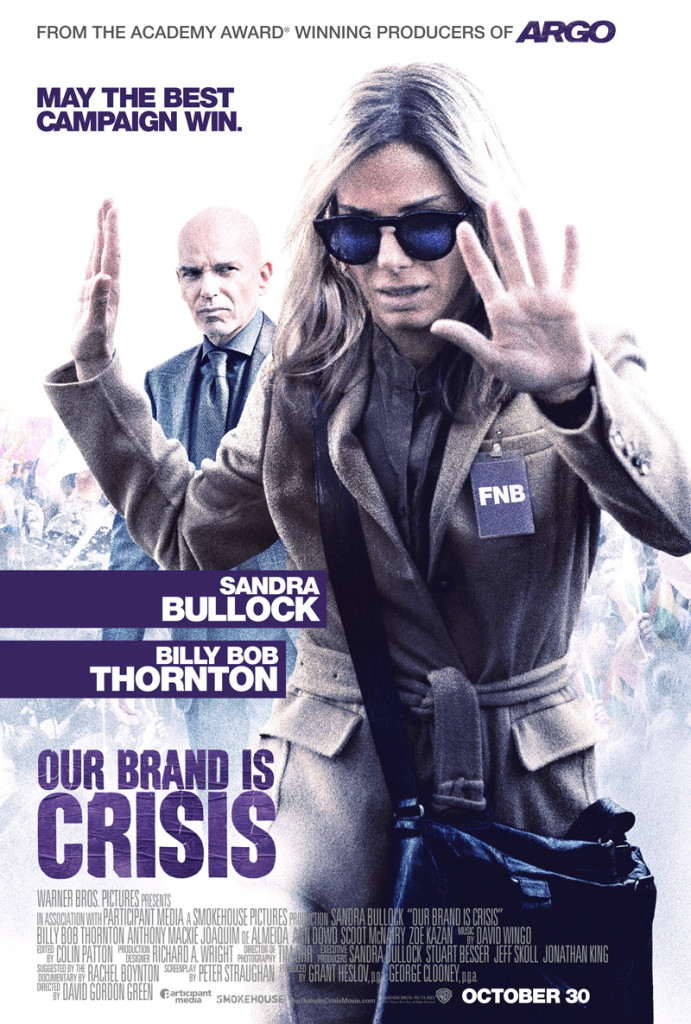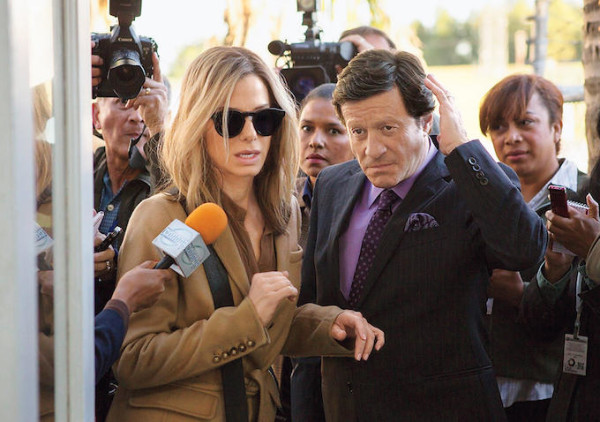Search Results for: the wall
I don’t like trashing movies. I really don’t. By and large, Hollywood is a place where people love movies and are doing their best to make good ones. “Nobody sets out to make a piece of shit,” some producer once said. And so you don’t want to trash someone who tried like hell and just couldn’t get it poppin. However, there are instances where people who don’t value the opportunity they’ve been given get to make films, or times where ego dictates a film getting made, or where the almighty dollar becomes more important to the studio than making a good movie. And in those cases, I think it’s okay to call the movie out. Almost every movie on my Worst Of List falls into one of these three categories. So yeah, I’m going to vent a little bit here. But in order to give the post some value, I’ll throw in a few screenwriting lessons along the way. Let’s get started, shall we?
10) Jupiter Ascending – Calling the Wachowskis misguided at this point doesn’t do their status justice. Sure, the two are the original imagine dragons and they possess spoon-bending directing skills. But they’re stuck in “M. Night Shalaman Land,” unable to realize how badly their writing is screwing up their movies. Jupiter Ascending is a classic case of writers trying to cram way too much story into their script. George Lucas had to come to terms with this with the original Star Wars, which was supposed to have most of the stuff that ended up in Empire and Jedi. He finally relented, realizing it was too much story to tell, and focused on a more contained version of the story (by the way, there isn’t a sci-fi adventure script I’ve read that didn’t have too much story in its first few drafts). What that script gained in the process was urgency – becoming one of the greatest chase films of all time. Jupiter Ascending, with its bulky and bloated plotting, was the antithesis of this, a lumbering leviathan, and a lesson to all aspiring screenwriters to KEEP YOUR STORIES LEAN!
9) Knock Knock – Maybe it’s serendipitous that our number nine slot involves the actor who helped bring the Wachowskis into the public spotlight. This one really hurts though. For like two seconds, Keanu Reeves was cool again. John Wick brought the “Whoa” back. Which meant we could look forward to a Keanu who would receive better scripts, get better offers, and reclaim his spot on the A-list. Except Knock Knock. Who’s there? Eli Roth. If there is a working director with a bigger name who is less talented than Eli Roth, I’d like to know who he is. Knock Knock takes a somewhat interesting premise – a married man who lets two stranded trouble-making teens into his home while his family is out of town – then writes half a screenplay out of it. That’s right. Knock Knock runs out of story 60 minutes through. The whole idea with a premise like this is you make it a one-night ordeal – a series of escalating problems that climax before daylight. Yet Roth and his writing crew inexplicably send the girls home the next morning, only to have them show up a day later to, I guess, inflict more pain on Keanu. Except by that point, ALL THE TENSION IS GONE, leaving us confused as to what the point of the story was anymore. The screenwriting tip on this one is pretty obvious. Once all the air is let out of the balloon, you can’t blow it back up again.
8) Man From U.N.C.L.E. – This was the most bizarre movie experience I had all year. I have never seen a movie with more beautiful cinematography and more talented directing come across so dead on the screen. It didn’t help that everybody in the film looked like they’d just smoked a pound of herb! Oh, and that Henry Cavill and Armie Hammer have the collective personality quotient of a monk at a hospice center. Luckily, not many people had to suffer from these performances since THIS MOVIE HAD THE WORST TITLE OF THE DECADE and therefore NO ONE SHOWED UP!!!! Okay, just work with me for a second on this. You’re John Smith living in Minnesota and you want to see a movie this weekend. I tell you the movie, “Man from U.N.C.L.E.” is playing. What do you think the chances are of him having any idea what the movie is about from that title? I’ll give you a hint. NEGATIVE 9 BILLION PERCENT! But for shits and giggles, let’s let him watch the trailer. That should make things clearer right? Um… sorta? It seems to be a buddy cop movie set in the 1960s? And one of the guys is Russian (when has a movie that featured a Russian accent in one of the main roles EVER done well in America????)? And they’re trying to stop something? And what do you tell your friend John when he asks why “uncle” has a bunch of periods inserted into it? I have no idea why anybody thought this movie had a Jawa’s chance in the Sarlac Pitt of doing well. Screenwriting lesson: Make sure your title helps sell your movie!
7) Entourage – This one seems like easy pickens. But it’s on the list because it’s bad in a way that none of the other movies are bad. It’s bad because it’s empty. More than all of the other entries, Entourage has the least story to tell. Indeed, when the end credits roll, it seems like we’ve been watching for 30 minutes. Vince (the lead character) directing a movie is supposed to be the “big hook” that makes this Entourage story worthy of feature-status. But Entourage the Movie is an example of why some stories are best kept on the small screen. Entourage has always been about the dialogue and the interaction between its lively group of characters. What it never purported to have was STAKES. You never felt like if the characters failed that anything bad would happen to them. And since movies are one event (as opposed to 100), the stakes need to be giant in them. Since Entourage had never operated in that arena before, it didn’t know what to do when given that mandate. And, oh yeah, since we were talking about Mary Sues the other day, isn’t Vince the biggest Mary Sue in the history of television? No movie felt like it had robbed me of my money more than this one.
6) Mississippi Grind – No film implored me to want to scrape my eyeballs out with rusty sporks in 2015 more than Mississippi Freaking Grind. I consider the hack that got Mississippi Grind made one of the industries biggest issues, and a loophole that bad writer/directors will continue to exploit if financiers don’t stop funding these. Basically, what you do is you write a non-story that centers around two miserable characters. Actors love playing miserable characters! So even though the story sucks balls, they sign on. And once you have known actors, you can get funding. And hence Mississippi Grind gets made. But the ridiculousness doesn’t stop there. Critics typically give these movies high marks because they’re different from Hollywood flicks and there’s at least one good performance. These factors help mask the fact that movies like Mississippi Grind are absolutely awful. Nothing happens in this fucking movie!!!! Two people gamble and talk and wallow in misery. FOR FUCKING TWO HOURS!!!!! There is never a point to any of it. These self-indulgent pretentious exercises in filmmaker masturbation do nothing other than convince a few poor souls to mistakenly lay down $5.99 for an Itunes rental. A mistake, I’m ashamed to admit, I made. I should’ve known better.
5) Fantastic Four – I know. Another gimme. We all heard about what happened. The director stayed in his trailer half the shoot, preferring to snort lines instead of help his actors read them. He’d get kicked off directing duties for a future Star Wars movie as a result (thank God!). They needed to bring in other directors to try and save the film. It was a mess. But movies have been saved from doom before. Maybe Fantastic Four could do the same? I’m afraid not, my friends. My best guess, from watching the film, is that the only stuff director Josh Trank shot before he went crazy was the first act. Because that’s all this movie is! One giant first act. I can’t tell you how many scenes there were of people in labs or on computers “researching things.” In a typical Hollywood blockbuster, those shots would’ve been relegated to a 60 second montage. Here they’re the main souce of plot for an entire hour! At a certain point it became a game of “How many computer generated DNA strands can characters look at in a single film?” Then, when we FINALLY get to the point where they go to the “other dimension” that they’ve spent 90 minutes researching, it’s a terribly composited incredibly ugly half-CGI empty moon-like surface. THIS IS WHAT WE’VE BEEN WAITING FOR THIS WHOLE TIME???? TO COME HERE??? This movie probably would’ve finished higher on this list if I didn’t feel so bad for all the people who had to work on it.
4) Terminator: Genisys – Here’s some advice for Hollywood studios. Do not, under any circumstances, deliberately spell a word wrong in your sci-fi title. It is a guarantee that your movie will suck. I’m serious. Star Wars was not spelled, “Star Warz.” Or “Starr Worrz.” Is there any person on this planet who didn’t know this movie was going to be terrible as soon as they saw this misspelled title? And yet still, after lowering the bar that much, Terminator: Genisys still somehow managed to disappoint us. As I’ve always said on this site, if you’re going to do time travel, KEEP IT SIMPLE. Time travel is inherently confusing. Trying to mash multiple time-jumping storylines together is a recipe for movie suckage. To me though, it comes down to this director. Here’s a guy who took one of the most iconic scenes in science-fiction history, the naked Terminator walking up to a gang of punks and demanding their clothes, and changed the haircuts of the punks (from blue spiked hair to black normal hair and from a short cut to a green mohawk) because he “felt like it.” Any director who doesn’t understand why you don’t change the hair of the characters in that scene SHOULDN’T BE ALLOWED TO FUCKING DIRECT THE MOVIE. What’s interesting about this film is that it was casting at the exact same time as The Force Awakens, and each production was fighting over the same actors. I can only imagine if JJ Abrams would’ve brought Emilia Clarke into the Star Wars universe. His pitch would’ve been so simple: “Come with me if you want your career to live.”
3) American Ultra – American Ultra puts every rant Max Landis has made on Youtube and Twitter into question. If he thinks this movie is good writing? I don’t think you can trust anything the guy says, whether it be about Mary Sues or lookie loos or piles of doo-doos. I can’t remember the last time a movie has made me hate its main characters so quickly. Our “hero” is a loser who smokes pot all day (why do I get the feeling this “trait” was based off of someone the writer knew?), refuses to do anything, doesn’t try to make his life better, whines all the time, and is generally a miserable worthless human being who has no interest in bettering his life. His girlfriend isn’t much better. She ALSO smokes pot all day, stays in like her boyfriend, gets pissed when her boyfriend doesn’t want to do anything, and is generally a humorless annoying excuse for a human being. THESE ARE OUR HEROES!!!!! What Max Landis doesn’t realize is that nothing he writes after he’s introduced us to these two people matters. It doesn’t matter if our protagonist all of a sudden gains Jason Bourne like powers. BECAUSE WE HATE HIM! A script can recover from a morally questionable character introduction. But it CANNOT RECOVER from a character the audience detests to the very core. But even if Landis managed to get that right, this is still a confused premise that’s only celebrated at 3 in the morning after everyone’s too trashed and too high to know a good idea from a bad one. “Like, he’s a stoner, who’s also, like, Jason Bourne. Wouldn’t that be awesome?” “Yeah dude. Max, you should totally write that.” “I can probably belt out a first draft by breakfast.” “Can I play the dealer?”
2) Aloha – This is the most significant of the movies I’ve put on this list because when I first reviewed this script, which was beyond awful, I got a call from one of the producers of the film chastising me for reviewing an early draft of the script (strangely enough, I kid you not, the final draft of the script added a major villain character named, “Carson”). Yet I knew, just knew, that there was no way this could ever become a good script. And it wasn’t because of the writer. This is Cameron fucking Crowe we’re talking about here, writer of Jerry Maguire and Say Anything! But the premise was so confused, so unsure of itself, that rewriting it was be akin to reorganizing the sheet music on a Nickleback song. Let this be a warning to all of you that if your concept is flawed from the beginning, there’s no way to save it. You can’t rewrite something that never had legs to stand on in the first place. And I know you’re all wondering, “How do you know if your concept is flawed?” There’s no universal answer to that other than GET FEEDBACK. If people look confused when you pitch them your idea? Or if you get a lot of polite observations that the concept is kind of hard to wrap their head around? That’s usually an indicator that your concept doesn’t work. In this case, it was that the concept was unfocused. There was no clear unifying idea, like in, say, Jerry Maguire: “A top sports agent must start back at the bottom after being excised from the biggest sports agency in the world.” What’s the unifying concept in Aloha? “A pilot comes to Hawaii to make sure a satellite launch goes well to stave off a rival Chinese company while rekindling two separate love interests and keeping the local Hawaiian government at bay?” I think some writers assume they can write their way out of a sloppy concept. It never happens.
1) Big Game – We’ll finish this list on a lighter note. I did not hate this movie. But it is unquestionably the worst movie of the year. The plot plays out like a bad 1980s Sylvester Stallone movie. The dialogue is so on-the-nose, you leave each line with a fresh blackhead. The characters are so over-the-top, you wonder how they keep climbing back onto your side. Just the premise alone – a stumbling-over-his-lines Samuel Jackson as president gets teamed with an Inuit boy who uses his hunting skills to help the president evade a Middle Eastern terrorist who doesn’t just want to kill the president, but hunt him down like a wild animal – is so bizarrely conceived you’re wondering if this is one of those MTV Movie Award comedy promos where someone’s decided to use the leftover footage and try and turn it into a feature. I was so fascinated by this awful collection of ideas, I went looking for more info on the film, and only then did the picture become clearer. The director is a Finnish guy from Helsinki who had, up until this point, only directed short films. I began to imagine a backstory for this man, one similar to the family in The Wolfpack, where he’d been chained to his bed-post growing up solely on a diet of cheesy 1980s action movies. What I’m about to say next is going to sound preposterous. But I swear to you I believe it’s true. I think this script was originally written in Finnish and the director simply put it through Google translate to get the script we see now. Like that’s how wonky this movie is. I cannot believe that this movie exists. I just can’t!
Tuesday is Best Movies of 2015!
Wednesday is Best Amateur Scripts of 2015!
I am going to make a declaration at this moment that will change your life. I am going to guarantee (yes, I said GUARANTEE) that I improve the dialogue in your latest script. Guaranteed better dialogue, you say, Carson? How is that even possible? Are you a magician? Funny you should ask. I am. And today’s magic trick is going to make Harry Potter s&%# his pants.
You see, I’ve been reading your Scriptshadow 250 entries, and one of the things I haven’t been too impressed with is the dialogue. Much of it is, shall we say, uninspired. So I cooked up some eggs (I do this whenever I have deep-thinking sessions) sat down with myself, and I asked myself, “What can I tell these eager screenwriting mavens to help them better their dialogue??” About five eggs in, after getting a good egg-buzz going, it came to me like a rooster at sunrise.
Dialogue… is differlogue.
Do not avert your eyes. Because yes, it just happened. I made up a word, my friends. One that I will be submitting for entry into Webster’s Dictionary as soon as I finish this article. You see, the main issue with all the dialogue I’ve read… IS THAT IT WAS ALL THE SAME. The sentence structure was the same. Everybody said the same things. Everybody spoke in the same cadence. Everybody had the same personality. These writers were not aware of life’s three essential truths. The right to freedom. The right to happiness. And that dialogue is differelogue.
The concept behind differlogue is simple. Good dialogue is derived from two characters who speak differently. The contrasting styles bring a natural spark to the conversation. If a depressed DMV worker is speaking with another depressed DMV worker, the personality of the dialogue is going to be very one-note (read: boring). But if you pair a depressed DMV worker with an over-sharing optimistic 17 year-old cheerleader, now your dialogue comes to life via the power of contrast.
DIFFERLOGUE!
You achieve differlogue by figuring out what makes a character unique, and then giving them an IDENTIFIER that will subsequently inform the way they speak. Once you’ve assigned identifiers for each character, put them in a conversation together and watch your dialogue come alive. There are literally hundreds of identifiers you can use for characters, but to start you off, I’ll list 15 of the most common ones. Here we go!
1) The Chatterbox – You know this person. Everybody has one in their life. They talk and they talk and they talk and they WON’T SHUT THEIR TRAP. They’re usually super annoying, and therefore perfect for characters you want your reader to dislike. However, you can use the chatterbox in endearing ways as well, such as with Lloyd Dobler in Say Anything.
2) The Cool Cat – The cool cat tends to take their time when they speak. They’re in no hurry. And they don’t care if you are. Unlike the chatterbox, who says a lot, the cool cat usually chooses his words carefully and says little. Check out Matthew McConaughey’s famous character from Dazed and Confused to see the cool cat in action.
3) The Nervous Nellie – This character hates talking. Every sentence is an adventure for them and they’re 90% sure they’re going to fuck it up. They’ll often stop mid-sentence, think back, re-phrase things, before stumbling forward again. These people don’t like to talk. And you can hear it in their voice.
4) The Impatient – These people have a million things to do and they consider a conversation with you as a necessary obstacle to achieving these things. For this reason, they spit out their words quickly and expect quick answers. There’s an underlying tension when these characters speak as their impatience puts pressure on others to keep up. A lot of bosses will carry this tone, but there’s no reason why you can’t assign the impatient to your hero’s wife (or even 5 year old son!).
5) The Clown – Some people can’t go ten seconds without making a joke. Humor is their way of getting noticed and also their defense against a cruel cruel world, so they’ll use it when times are good and when times are bad. Don’t be afraid to play with these characters. For example, you can make them genuinely funny or embarrassingly unfunny. Each will have a different effect on the dialogue.
6) The Movie Star – No, I don’t mean a literal movie star, I mean the kind of character who oozes so much charm, so much confidence, so much swagger, that they come off as larger than life. The ultimate “Movie Star” character is Tony Stark, aka Iron Man.
7) The Internal – This character speaks even less than the cool cat. They don’t think talking is worth all the trouble. If they have something important to say, they’ll say it. Otherwise they either answer in 1-3 word sentences or not at all. A great example of The Internal is Mike from Breaking Bad and Better Call Saul.
8) Sarcastic Sam – A close cousin to the clown, think of Sarcastic Sam as an opportunist who’s always looking for the perfect moment to bust out his favorite sentence-toy, sarcasm. “You cold? You look cold.” “Oh no, my face is always the color of sea water.” Even when Sarcastic Sam isn’t being sarcastic, you get the sense that he’s waiting for the next opportunity.
9) The Military Man – These characters tend to speak very formally and get straight to the point. Like The Impatient, they create tension in a conversation, but the military man is more respectful and engaging. Still, these characters will rarely add flavor to anything they say. They keep it vanilla unlike Godzilla. The ultimate military man was Colonel Fitts from American Beauty. But there’s no reason why you can’t assign “Military Man” to a babysitter, a 7-11 checker, or a UPS delivery woman.
10) The Used Car Salesman – These characters always seem to be selling you something, even when there’s nothing to sell. They also always seem like they’re hiding something or know something about you that they’re keeping to themselves. These characters always keep you off-balance since you can never trust a word they say.
11) Debbie Downer – This person finds every opportunity to rain on your parade. Tell him it’s nice out? He’ll counter with, “Enjoy it. It’s supposed to rain tomorrow.” Compliment his tie? He’ll point out, “It’s my father’s. He died last month.” Take him out for his favorite ice cream. He’ll take one lick before proclaiming, “It was better last week.” Nobody likes a Debbie downer, but they can be a joy to write dialogue for.
12) The Know-it-All – The know-it-all doesn’t need much explanation. He knows it all. And he’s going to tell you every chance he gets.
13) The Queen Bee – The Queen Bee, like everyone here, is not gender specific. It can be a woman or a man. It signifies someone who’s in charge and uses that power to influence the world around them. These characters have a way of talking down to you like you’re five.
14) The Scatterbrain – The scatterbrain usually has 15% of his brain dedicated to the current conversation and 85% to all the other shit they have to do. The scatterbrain will ask for a lot of “Say that agains” and pepper his speech with plenty of “uh-huhs” even though he’s rarely listening.
15) The Guarded – The Guarded speaks very carefully since they don’t trust people. They believe everyone they talk to wants something or knows something about them, and therefore a conversation with The Guarded is sort of like a chess match. You have to make the right moves to get more out of them. Otherwise, their measured approach will stonewall your ass.
These are just 15 examples but there are plenty more out there. If you’re looking to add to the list, find your favorite movies and see if you can label the main characters with an identifier. Now some of these might seem a bit broad, but they’re just starting points. There are shades of gray to each. And you’ll find that some of your favorite characters ever fall into these categories. Robert DeNiro in Heat is a Guarded. Andy Dufresne in Shawshank Redemption is an Internal. George McFly in Back to the Future is a scatterbrain.
But the real power of these identifiers comes when you do two things: Use them against type and pit two opposite identifiers against each other. For example, to go against type, make a dorky 13 year-old the Queen Bee. Or make the CEO of the biggest company in the world a Nervous Nellie. The irony should add a little extra kick to the dialogue. Then, to really have fun with dialogue, pit the most contrasting identifiers against each other. A Negative Nancy with a Movie Star. A chatterbox with a Guarded. A know-it-all with a military man.
In fact, I want you to do that right now. In order to see the power of the differlogue, take a couple of the above identifiers, opposite ones preferably, assign them to two characters, then go write a scene. You’ll notice your dialogue getting better right in front of your eyes. From there, you’re only steps away from utilizing this tool in your current screenplay. I’d ask you to post your results but there isn’t any point. All of it will be genius. Have fun writing the best dialogue ever!
Genre: Thriller/Serial-Killer
Premise: A killer exploits society’s over-reliance on mobile technology to pick off his victims one by one.
About: Today’s writing duo is one of the hottest in Hollywood. They shot onto the scene with their heavily hyped debut spec, “Die in a Gunfight” (straight out of college, no less). Unlike a lot of writers who get a sale and disappear into obscurity, they parlayed that sale into a few writing assignments, eventually landing one of the coveted Marvel projects (Ant-Man). That job has led to a job on Transformers 5. Make fun of Transformers all you want (I do) but landing a writing job on a summer franchise film is a huge freaking deal. Low Tide is a script the writing team sold to 20th Century Fox last year. This is a more recent draft.
Writers: Andrew Barrer & Gabriel Ferrari
Details: 121 pages – 3/21/15 draft
What in the sam hell?? We’ve got a sequel-free, remake-free, biopic-free, not a true story, based-on-absolutely-nothing official spec screenplay here! If I weren’t such a cynic, I’d say that we’re reviewing a piece of original fiction. It’s been so long since I’ve actually done that, I’m not sure I’m qualified to do it anymore.
The way the spec market has gone, the buyers want you to stay in HARDCORE genre lanes. Like “Bed Rest,” which sold to MGM last month. That’s a clear horror genre flick that can be marketed right out of the Final Draft box. I was just reading an article about Robert Zemeckis’s new film, The Walk, and he said that every single production company and studio in town turned the project down. When asked why, he said, simply, “It doesn’t fit into any slot, if you know what I mean.” That’s the way this business works. So for Barrer and Ferrari to go against the grain and give us an offbeat serial killer flick, you gotta give’em knuckles.
But The question that kept popping up while reading Low Tide was, how far off the beaten path can you take a genre? Did these two go too far?
30-something Shae White is not your average detective. Not only did she lose her sister in a murder-suicide when she was just a girl, but she spends her off-time going to sleazy Atlantic City hotels and banging strangers with the explicit rule-set that they tell her they love her, despite her wanting nothing to do with them afterwards. She even keeps the dirty panties from the sex-sessions in a giant drawer in her bedroom. Hash-tag naughty.
Shae is assigned to a strange case where her daughter’s future boyfriend is attacked by a shark and loses his leg. When the police go fishing for the leg, they instead find another leg, that of a recently deceased female.
When the police find the rest of the female, they learn she was murdered, but they decide not to share this detail with the public in fear of wiping out 4th of July tourist traffic on the Jersey Shore.
Shae teams up with another detective, Pete, and the two discover that a man named Robin Goodfellow is texting young women from the fake accounts of their lovers in order to lure them into murderous situations. Goodfellow is sort of a cross between Jigsaw, Scream-Villain, and Hannibal Lecter, a philosophizing recluse who enjoys playing people for chess pieces.
It isn’t long before Goodfellow begins targeting Shae, texting her and calling her with an untraceable fake electronic voice. But Goodfellow may be targeting someone above his pay grade this time. Shae gradually puts the clues together and finds our psycho recluse, leading to a showdown that will leave only one of them able to keep texting those “lol’s.”
There’s a part of me that respects what Barrer and Ferrari have done here. One of the hardest things about screenwriting is walking that fine line between embracing traditional screenwriting structure, and adding just enough messiness to keep your script unique.
This is often what leads to that coveted “voice” we hear so much about but rarely understand. The way in which you break those well-worn rules is what makes your voice different, is what makes your work feel like you. But here’s where the “fine line” thing comes in. Those detours only look good if they work. And I’m not sure they worked in Low Tide.
Right from the start, I had a hard time finding my footing. We start with a cool scene where a girl gets a spooky text from someone while with her boyfriend. The text says only, “He knows.” It turns out our girl has been unfaithful, and now she’s in an isolated area with a guy who, if the texter is to be believed, plans on harming her. So she runs, and it doesn’t end well.
We then go to a woman throwing her dirty panties into a post-sex dirty panty pantry. We then jump to a girl who may or may not be her daughter (it isn’t made clear) who watches as the boy she has a crush on gets his leg bitten off by a shark. We then watch the police fish out the boy’s leg and bring it to the hospital to be reattached, only to realize it’s a different leg. We then find the source of this different leg – the now-murdered girl from the opening.
I suppose it sort of makes sense but it was all so disjointed that 30 pages in, I still didn’t know where the script was going. Eventually our killer, Robin Goodfellow, is introduced, and he provides some connective tissue to all this madness, but Low Tide spent the majority of its tide just trying to make sense.
I mean I’m still not clear on how Goodfellow kills his victims. He doesn’t do it himself, since he stays in his little room the whole time. I guess this means he recruits others to do it. But that’s pretty far-fetched, the idea that you can recruit random people willing to partake in your weird text and fake-electronic-voice phone murders.
That wasn’t the only sloppy part. One of the ways you can tell a script’s not working is if key characters disappear for long chunks of time. This indicates the writers weren’t thinking things out ahead of time or don’t know what do with the characters. Nancy, Shae’s daughter, gets a couple of key scenes early on (saving our shark-attacked boy), and then disappears for 40 pages at a time.
I know there’s an ongoing war in the screenwriting community between outliners and non-outliners, but this is where outlining really helps. You can see exactly where characters need more time and where they don’t.
The movie inspirations here were also too heavy. The shark attack and subsequent “hidden from the public to keep profits up” storyline was ripped straight out of Jaws. The electronic voice stuff was taken straight out of Scream. And our serial killer manipulating our female lead was too similar to Silence of the Lambs.
Look, it’s hard not to include plot points and characters from our favorite movies. That’s why we became screenwriters in the first place. Because we love movies! But the way you want to approach imitation is the way actors study subjects they’re going to play. They don’t ape their mannerisms or do impressions of those people. They take the ESSENCE of the person and let it inspire their own unique performance.
Take the ESSENCE of what you see in the filmmakers and writers you enjoy and apply that to your script. Avoid applying direct plot points and characters. I particularly see this problem with young screenwriters. For whatever reason, they’re more prone to bring in stuff from the movies they love. Veteran screenwriters actively look to create their own storylines and strive to be different from their predecessors.
The good news is, these two are visual writers. They’re definitely thinking about what’s going to be up on that screen. And that’s important. A woman stalking around in a sex-dungeon wearing a half-destroyed Pinocchio mask while an electronic voice taunts her is major trailer material.
And Shae’s weird sex addiction was compelling as well. The whole insisting on people telling her they loved her, while actively avoiding love, while also keeping this bizarre panty memoir. That had me wondering what this woman was going to do next. If you can write characters that have readers turning pages because they want to know what they’re going to do next? That’s a rare talent.
But in the end, this felt too patch-work for me. And I couldn’t get over the stuff taken from other movies. These guys are definitely talented and have a unique voice. But you can’t be unique if you’re blatantly bringing other movies into your story. I’ll be interested to see what you guys thought. There’s a bit of True Detective in Low Tide’s DNA. And I know you all loved that show (me, not so much!). This cold be one of those “Carson hates, but everyone else loves” scripts??
[ ] what the hell did I just read?
[x] wasn’t for me
[ ] worth the read
[ ] impressive
[ ] genius
What I learned: Don’t write like a virgin. – There’s an old saying that pops up every once in awhile: “Kiss like a virgin.” It refers to the over-the-top, heavy lip and tongue, intense over-compensating kiss you give when you haven’t had sex yet. There’s an equivalent in screenwriting. “Write like a virgin.” This is when writers use big words, throw in a lot of heavy “look at how smart I am” philosophizing by characters, rounded up with lots of references to historic literary titans (both Twain and Nietschke get some love in Low Tide). This kind of writing, if overdone, makes the writer look insecure. The veteran pros know that it’s all about story. They don’t need to prove their worth in every line. If the sentence, “He walks over and grabs his wallet” is all that’s needed for the moment, despite it being an overly-simplistic presentation of the action, that’s what they’ll use. I wish Barrer and Ferrari would stop trying to prove how much they’ve read or studied or how many big words they can use and just write. They’re talented guys. Why all the fireworks?
M. Night’s new film shocks with a bigger than expected opening. But is this a “visit” worth taking?
Genre: Horror
Premise: (from IMDB) A single mother finds that things in her family’s life go very wrong after her two young children visit their grandparents.
About: You’ve loved him, you’ve hated him, you’ve laughed with him and you’ve laughed at him. And whether you like it or not, the once pop-culture directing icon (The Sixth Sense, The Happening, Signs) is back with a new film. Yes, I’m talking about M. Night Shyamalan. Night has sunk so low in the eyes of the paying public that he’s been forced to play by Hollywood’s new horror-film rules: 1) Get a hall pass from Jason Blum. 2) Don’t spend more than a million dollars. But darnit if Night didn’t make the most out of the opportunity. While his movie didn’t win the weekend, it did finish with 25 million dollars, almost 10 million more than what was expected. It’s a huge win for Night. But is it a win for us?
Writer: M. Night Shyamalan
Details: 94 minutes
One of the quirkiest parts of my day-to-day existence is how much I think about M. Night Shaymalan’s career. I probably think about it (usually negatively) once every couple of days. Even if he hasn’t made a movie in years.
This probably reflects more on me than it does Night. But as a screenwriting obsessist, there’s a part of me that gets really angry at the fact that he’s still making films. Not because he makes bad movies. Every writer-director has their Grindhouse. But because he makes REALLY REALLY bad movies. Like bad enough that if 20 years from now Night revealed that, as an experiment, he had a 5th grader write “The Happening,” I wouldn’t bat an eye.
It seems, at times, that he’s so out of touch (placing “symbology” higher on the priority list than THE ACTUAL FUCKING STORY), that someone ought to take the proverbial keys from him and get him an Uber. To retirement.
I remember when Unbreakable came out, his first movie after The Sixth Sense. The world was so drunk on Night Fever that they went into that thing with Night-as-my-God colored glasses and came out believing they’d just seen Citizen Kane 2.
I tried to rally the “what the fuck did I just experience” troops to no avail. But the signs were there. The entire movie was an empty excuse to set up a twist ending that made little, if any, sense. That’s one of the signs of a bad writer – someone who ignores the story itself in service of trying to wow the viewer at the end.
While everyone told me I was crazy, I watched as the mistakes I saw in that film became more and more pronounced with each new effort (Signs, The Village, The Little Mermaid 2), and, in that sense, I haven’t been surprised at all at how terrible his movies have become. For those paying attention, this was inevitable.
Which brings us to The Visit. Now, I’m pulling a “before I watch” written intro, which means I’m writing all of this down before I go see this movie. What am I expecting? Despite attempts to avoid spoilers, I’ve heard spits and whistles saying this is Night’s best movie since his early days. But, honestly, I don’t believe it.
I think everybody’s just so used to garbage from this guy that anything not garbage is going to seem great. So with that uplifting attitude, off I go to watch the movie. Wish me luck!
The Visit follows 13 year-old aspiring rapper, Tyler, and his sister, 15 year-old aspiring filmmaker, Becca, who really really want to meet their grandparents, and so have convinced their mom to allow them to spend a week at their home.
The family hasn’t had the best go of it. Mom left her parents in a huff 15 years ago after meeting a guy and hasn’t spoken to them since. She married him, had Tyler and Becca, but he left the family five years ago and hasn’t kept in touch since.
Told in a “found footage” type style, with the entire movie seen through the eyes of Becca’s TWO really expensive cameras, serious Becca and goofball Tyler start to notice their grandparents are a little strange. For example, “Nana” will just join in on “hide-and-seek” time wearing nothing but her nightgown and galloping around on all fours like a child.
With their mother busy on a cruise with her new boyfriend, the kids are only able to share their concerns about the grandparents in small doses. But when Nana starts trying to climb walls naked, that’s when bro and sis realize it’s time to jet. Too bad the grandparents catch on. And by then, it’s too late.
Let me start off by saying the crowd I saw this with really dug it. They were laughing their asses off. And if there’s one area The Visit should be praised for, it’s humor. Tyler, with his awkward rap obsession, along with the goofy vibe that both Nana and “Pop Pop” put out, give The Visit, at the very least, a quirky watchability that isn’t present in any of Night’s previous films, mainly due to the fact that he takes himself so seriously.
But the humor wasn’t just a win because it provided laughs. The humor brought us closer to the characters. That’s something screenwriters don’t talk enough about. Once you start laughing with characters, you feel closer to them (not unlike how you feel closer to people you laugh with in real life), and that makes you care more about what happens to them, which is key in any movie, but especially horror, where you want the audience to be engaged when the character encounters danger.
While this was a pleasant surprise, it couldn’t hide some of the movie’s clunkier issues. One of the stranger additives here was the “found footage” approach. For those who watch Night’s films, you know that Night’s directing style is THE OPPPOSITE of found footage. He likes to control every aspect of the frame, every camera movement, every line of dialogue, even down to the finite moves of the actors.
Remember the most manufactured scene in movie history? When the family in Night’s film, Signs, gets up on a car together and holds onto each other in order to get a walkie-talkie signal? That’s what Night loves to do.
Good “found footage” movies leave a lot of control up to the actors (Blair Witch), knowing that that’s the only way the footage is going to truly feel “real.” So when you watch The Visit, you can see that tug-of-war happening in every shot. The desire to create something organic and natural, ruined by the need to make every shot look, sound, and feel perfect.
I’ll give Night this though. It gives the movie a feel unlike anything else you’ve seen before. I’m still not sure if it’s a “good” feel. But it’s unique. And that counts for something.
Surprisingly, what saves this movie is the writing. Night has clearly spent more time on this script than his last 7 combined. And let me explain to you how I know that. Unfortunately, it’s going to require me to get into some big spoilers. So skip to the “What I learned” section if you haven’t seen the film yet.
Early on, we establish that mom hasn’t spoken to her grandparents in 15 years. She hasn’t even spoken to them for this trip. Everything was set up through the kids. We later find out why this plot point is needed. When the kids point out their grandparents in the yard over a late-movie Skype session, the mother’s face goes white. “Those aren’t your grandparents” she says. It turns out they’re a couple of escaped mental hospital patients posing as the grandparents.
In other words, if Night hadn’t written in this “I don’t talk to my parents anymore” plot point, there’s no film. The mom would’ve been able to talk/Skype with the kids AND the grandparents at the same time, immediately exposing them as imposters.
That gives the movie a bit of a “held together by popsicle sticks and rubber bands” feel to it, but there’s just enough there to make it work.
Now in the past, Night would’ve left it at that. And it’s indeed a fun twist that would’ve worked just fine. But what Night does here is HE MAKES THIS PLOT POINT WORK FOR THE STORY. Specifically, the whole reason that the daughter wants to meet her grandparents is to help repair the relationship between them and mom.
Between scares, Becca is asking her grandmother and grandfather about what happened. Why did the family fall apart? It becomes a major part of the story. This way, when the twist happens (they’re not the real grandparents) it doesn’t feel cheap, since Night milked the most of the storyline that allowed that twist to happen. That’s good writing!
Unfortunatley, I’m left wondering how long this new M. Night aroma will last. He’s FINALLY made a solid flick again. Yet his next movie will be a production of the very first script he sold, Labor of Love. I can honestly say that this is the worst script Night has ever written. It’s even worse than The Little Mermaid 2 (it’s a super-sap-fest about a man who walks across America after his wife dies).
If Night wants the adulation of movie fans and the industry – which deep down I think he does – he needs to keep playing in this sandbox. Tiny horror movies with no expectations. Small budgets that force him to get creative with his storytelling. That’s where he makes his best stuff. However, I’m afraid we’ll be cursed with M. Night Egomalan again. And just like old geezers who turn crazy after sundown, there’s not much we can do about it.
[ ] what the hell did I just watch?
[ ] wasn’t for me
[x] worth the price of admission
[ ] impressive
[ ] genius
What I learned: Movies are about unresolved relationships. We talk about this all the time here. In every relationship in your movie, you want to pick out something big or small that’s unresolved, then use your story to explore and resolve that issue. The Visit taught me that you can have unresolved relationships with characters who aren’t even in the movie! A big off-screen character here is the father, who brother, sister, and mom, all have issues with for leaving them. I liked how The Visit used those unresolved relationships with dad to drive a lot of the character development here. Tyler, in particular, seems very hurt by the fact that his father left, and partly blames it on himself. I also really liked the way they resolved this relationship. No, it wasn’t by calling the father and demanding answers. If you read Thursday’s “Cinematic Writing” post, you know that you want to solve all script problems by SHOWING AND NOT TELLING. We get closure when Becca, who swore she’d never use any footage of her father in her documentary, ends up including footage of him with them when they were younger. All we see are the images of him/them spliced into the final cut, but that’s all we need. We know they’ve finally found closure with the dad.
Genre: Drama/Satire/Comedy?
Premise: A washed up political strategist becomes the campaign manager for a soulless presidential candidate in Bolivia.
About: “Our Brand is Crisis” is Sandra Bullock’s attempt to add another Oscar to her mantel. The script is based on a documentary that chronicled a Bolivian election, although I don’t know how close to real life they’re playing it since our main character in the documentary as well as in this draft of the script, Bill Bodine, has been changed to a woman (now being played by Sandra Bullock). The project has some major firepower behind it. The producers of Argo. And Bullock’s bestie, George Clooney, is pitching in with his partner, Grant Heslov, to help produce. The script made the 2008 Black List with 22 mentions, somehow beating out Inglorious Basterds (I’d like to see the voting behind that political process). Writer Peter Straughan is highly regarded amongst actors. He got Clooney to star in The Men Who Stare at Goats, Michael Fassbender to star in Frank, Gary Oldman to star in Tinker Tailor Soldier Spy, and now Bullock to star in this.
Writer: Peter Straughan
Details: 126 pages (this is the draft that made the Black List in 2008)
Despite a ton of strong buzz and making the Black List, I’ve avoided “Our Brand is Crisis” like Bolivian street meat. For those not aware, screenplays lose 60% of their entertainment value the second you write “Bolivia” into the margins.
The only redeeming factor here is that they somehow got Sandra Bullock to sacrifice her self-respect and commit to this role. I LOVE me some Sandra Bullock. She’s one of the only movie stars on the planet who embraces her flaws, which is the secret to her longevity.
But that actually makes me question this movie even more. If they had to change the sex of the main character so they could cast one of the most likable actresses on the planet, what does that say about their confidence in the material?
“Crisis” introduces us to Pedro Gallo, the president of Bolivia, as he prepares for his re-election. Despite being the incumbent, Gallo is a million points behind his opponent because he’s a ruthless dictator who has a few rough spots on his resume – such as the time he murdered a bunch of his people.
In comes Bill Bodine to save the day (this is Sandra Bullock’s character before the gender-change rewrite). Bodine was a once kind-of successful campaign manager until his nemesis, Pat Candy, destroyed him in a small-town Texas mayoral campaign. Since then he’s been drifting through life.
Why he’s even in Bolivia to run Gallo’s campaign, then, is one of the many mysteries of the script. He doesn’t want to be there. He doesn’t appear to need the job. His team members are smarter and seem to care more about winning than him. Uh, why is this guy in our movie again?
Eventually, Bodine decides to give a shit about the campaign (nothing brings this on – he just feels like it one day), and is spurred on when he finds out that good old Pat Candy is advising Gallo’s opposition. Finally, a chance to defeat the man who ruined his life!
Bodine opines that the only time people vote bad leaders into office is when the country is going through a crisis. Since their client is a horrible person, all they need to do is find a crisis to put the country in, then everyone will vote Gallo president.
Sticking with the theme of bad storytelling and lack of clarity, it’s never made clear what the actual crisis they come up with is. But why explain a component so critical to the story that it’s in the title when you can instead drag us through one of the most rudimentary political campaigns in history? I’ll let you answer that.
Have you ever been on a date where you order coke and your date orders coffee? Where you order steak and your date orders salad? Where you wanna talk about music but your date wants to talk politics? Where every time you laugh, your date is stone-faced, and vice-versa? Where you and your date seem to be diametrically opposed to every single topic of conversation on the face of the planet?
That’s how I feel when I read Peter Straughan. I didn’t know Straughan had written this but had I, I never would’ve opened it. I just don’t see eye-to-eye with this man. The Men Who Stare at Goats is one of the worst scripts I’ve ever read. And “Frank” represents everything wrong with indie movies (all quirk and zero bite). Even Straughan’s best offering, Tinker Tailor Soldier Spy, I found both boring and tedious.
So it should be no surprise that I absolutely despised this. And look, I’m well aware of the fact that when you’re not into something, you pick it apart. So you’ll have to take this review with a grain of salt. But, I mean, come on. The guy practically handed me the shaker.
Let’s start with Bill Bodine. We spend the first 25 pages watching this guy stare at walls and ceilings. Why? WE HAVE NO IDEA. Pages and pages go by where Bill refuses to come out of his hotel room. And there’s no indication as to what’s causing this. Not even a hint!
It’s not only boring, but FRUSTRATING! As a reader, when a character is acting in any sort of extreme manner, you’d like to have an idea of why. Or else the character becomes a big ball of confusion. Sure, there are times where you want to keep some information (the character’s backstory) from the reader. But we go 60 pages before we learn anything about why this dude is acting like such a putz. I was pulling my hair out.
And because of this, I grew to hate Bill Bodine. I mean, when have you ever liked a character who mopes around, feels sorry for himself, is inactive, and is pathetic? Nobody likes that person. Ever. So even when Bodine started acting like a normal person (70 pages into the script), I’d already formed my opinion. He hadn’t given me a single reason to root for him (it’s making more and more sense why they cast Sandra Bullock).
When we finally do learn what drove Bodine crazy (losing to his rival, Pat Candy, in a tiny mayoral election in Texas 15 years ago), we’re again stuck throwing our hands in the air. THIS IS HIS BIG SECRET??? He lost an election as a young campaign manager in a tiny Texas town forever ago???? I’m sorry but this makes the character even MORE pathetic.
Then there’s Pat Candy, Bodine’s “rival.” Candy is supposed to represent success, the “winner” who’s gone on to become everything Bill Bodine hasn’t. Well pardon me for asking, but if that’s the case, WHAT THE HELL IS HE DOING SLUMMING IT UP AS A CAMPAIGN MANAGER IN BOLIVIA??? He obviously can’t be that successful. Which was just one of many WTF moments I had reading this.
As if that wasn’t perplexing enough, the election storyline devolves into the cliché, “Do we run a negative campaign or not” debate. I mean, the one unique thing you have going for you with this idea is that it’s set in a third-world nation. This gives you the opportunity to explore aspects of a campaign that you’d never be able to if this were set in America.
Instead, we get “Should we go negative with the ads?” which is a trope we’ve seen used in every single one of these movies ever. If you’re not going to exploit the most unique aspect of your premise, why not just move the election to America where the story will be more relatable and draw a bigger audience?
I mean you’re representing a man who has murdered his own people. This is supposed to be a comedy (I think). So why not have fun with that? Why not show them trying to spin that? Yet that’s another problem with this script. It kind of wants to be a comedy but it’s afraid to commit. And you can see this in the trailer. It wants to be taken seriously enough to be called a “satire.” But it still wants those goofy Sandra Bullock moments (or scenes where llamas blow up). It can’t make up its mind.
And I will tell you this right now. If a script is ever unsure of what it wants to be, it’s a dead script. Because, as the writer, you’ll be dancing around the entire screenplay, trying to walk that line, and it ALWAYS shows up in the finished product. The readers and the audience always pick up on it.
I’m going to turn to you guys now. Does this movie appeal to you at all? If so, why? What is it that I’m missing? Because all I see is…
a) Extremely boring subject matter (politics).
b) A film set in the most boring country I can think of.
c) A film unsure of its own tone.
d) A lack of a hook.
e) A script afraid to exploit its concept.
If this movie has a chance, it’s Sandra Bullock. That’s it. Her face and the trust her audience has in her that she won’t lead them down a rotten path. But I don’t think even she can save this. I wish I could latch onto something here to finish on a positive note but I’m struggling, guys. Maybe the documentary was good? Go check that out? But do me a favor and don’t tell me about it. I’d like this review to be the last time I ever hear about Our Brand is Crisis.
[x] what the hell did I just read?
[ ] wasn’t for me
[ ] worth the read
[ ] impressive
[ ] genius
What I learned: I think it’s okay to keep the backstory for your SECONDARY CHARACTERS a secret for an extended period of time (Abraham from the great script, The Brigands of Rattleborge, comes to mind). But I don’t think you can do that with your main character. There are a few exceptions, of course. But, generally speaking, the audience wants to know their hero. The hero is the one taking them on this journey. So if they’re a bottomless pit of mystery boxes for 60 pages, the audience is going to get frustrated and turn on them. That’s what happened to me here with Bill Bodine. I wanted to know why the hell this guy was acting so bizarre, but it took Straughan forever to tell me. I lost interest in the meantime.

